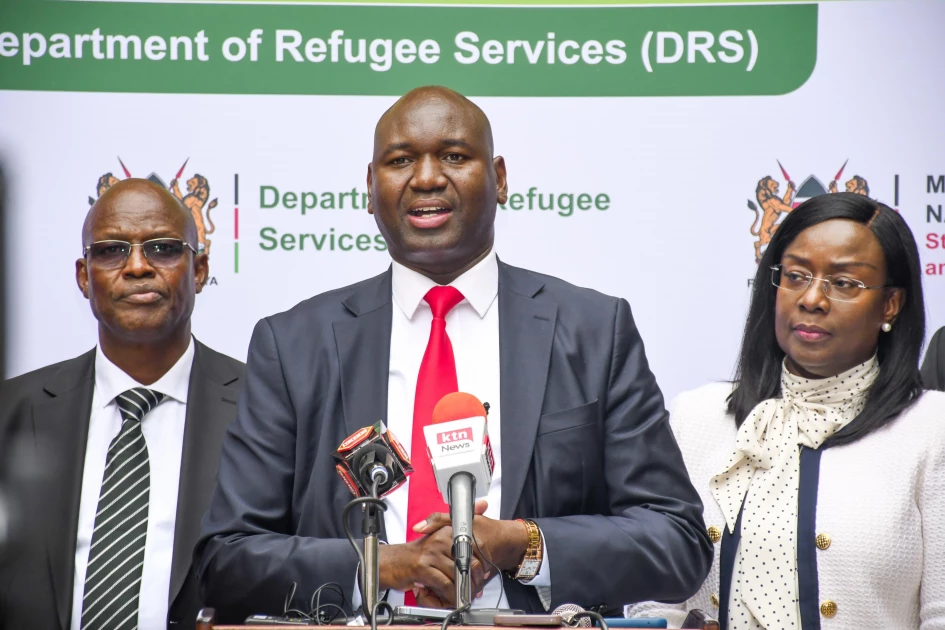Relief for over 700,000 refugees as Daadab, Kakuma camps to be integrated into local communities


Audio By Vocalize
Immigration Principal Secretary Julius Bitok, speaking on Thursday during World Refugee Day, said a new plan called the Shirika Plan, which will be launched in November of this year, will see Daadab and Kakuma integrated into Garissa and Turkana counties, respectively.
Bitok stated that the plan, which will be implemented in collaboration with the national government, respective county governments, the UN, and the UN Commission for Refugees, will ensure that the camps benefit from increased socioeconomic investments such as schools, health facilities, roads, and modern markets, among other key infrastructures.
He estimated that $943 million (Ksh.115.6 billion) would be required to implement phase one of the four-year project.
“This money will come from different partners and donors, including governments and the private sector. It will be channelled not only through the government but also through international NGOs, county governments, ministries, and departments such as the Ministry of Lands,” he said.
PS Bitok noted that the required framework to support the implementation of the Shirika Plan was already in place.
“The enactment of the Refugee Act 2021 gave us the foundation. We also have the gazettement of regulations to operationalise the Act. We have a gazettement of documents used by refugees. The government has made a lot of progress in ensuring there is a legal and regulatory framework to support the Shirika Plan,” the PS added.
Bitok further revealed that both Turkana and Garissa county governments have also gazetted the two camps as municipalities to anchor the necessary planning and infrastructure upgrading.
He says as municipalities, Daadab and Kakuma camps will be restructured into modern urban centres with the requisite infrastructure such as roads, water, sewer systems and other necessities.
“The settlements will be repurposed to favour mobility, freedom of movement, economic inclusion, and refugee participation in the country’s development processes,” stated Bitok.
Interior PS Raymond Omollo who was also present at the meeting said the integration of refugees among host communities will enhance local and national security.
“It represents an innovative approach to refugee camps into integrated settlements that support the social economic inclusion of refugees and host communities thereby enhancing national security and cohesion.”
His foreign affairs counterpart, Korir Sing'Oei, praised the Shirika Plan as a realistic assessment of refugees' social-economic potential, saying, "We have embraced a paradigm shift that no longer regards a refugee as a burden to be repatriated as soon as possible. Rather, we want to harness their skills and industry in ventures that are profitable to themselves and our country.”
Turkana Governor Jeremiah Lomurakai, for his part, said the Shirika Plan will address concerns that development partners prioritise funding refugees over host communities.
“There should be imperative balance when it comes to resource sharing, employment and many other things between the host community and refugees.”
UN Resident Coordinator in Kenya Stephen Jackson and Kenya’s Representative for UNHCR Caroline van Buren promised to support the implementation of the Shirika Plan.
The Shirika Plan National Steering Committee comprises governors of Nairobi, Garissa, and Turkana counties and at least 17 PSs from state departments of Interior, Treasury, Health, Lands, Water, Housing, Education, and Foreign Affairs which are critical in implementing the integration.


Leave a Comment